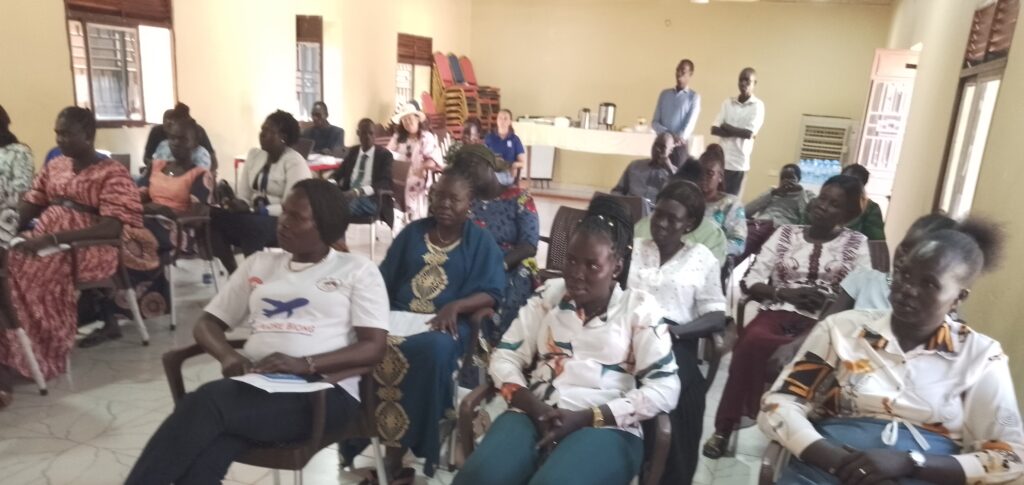The United Nations Development Programme (UNDP) on Wednesday trained 25 women in mentorship and transformational leadership in Kuajok, the capital of Warrap State.
The two-day conference, organized by the National Ministry of Gender, Child, and Social Welfare in collaboration with the State Ministry of Gender and supported by development partners, aimed to empower women leaders and guide them towards inclusive political leadership and peacebuilding.
The event brought together 25 women from six counties across Warrap State.
Rose Anyang, the state Minister of Gender, Child, and Social Development, called on the women to unite in their efforts for peacebuilding and increased political participation. “The strength of women comes with your ability to stand together and do things together,” she said. “If we unite as mothers of this country, we can bring peace because we own the revitalized peace agreement.”
Anyang urged the women to actively engage in shaping the future, not only for their own benefit but for the next generation. She also emphasized the importance of addressing gender inequality, which she says remains a significant challenge in South Sudan.
“These two years of revitalized agreement extension are not ideal, but we can still make good use of them,” she said. “Some of you come from different political parties—exert your efforts in the constitution-making process and work towards changes that will improve the lives of women in Warrap and South Sudan.”
Addressing the cultural barriers that hinder women’s political participation, Anyang called on women to embrace entrepreneurship and compete equally with men. “The great challenge we face as women is poverty—we don’t have the resources or authority to sell a cow and fund a political campaign. So, let’s mobilize our own resources as women, regardless of our political affiliations,” she appealed.
Lucia Bassa, UNDP’s Community Protection and Cohesion Officer, emphasized the importance of the training in preparing women for leadership roles. “This training is crucial for transforming women to better fit in leadership,” she said. “It’s an initiative from the Ministry of Gender, with UNDP supporting it. Work hard and reach the levels other women worldwide have attained.”
Lual Malueth, the lead facilitator, outlined the key goals of the conference. “The conference focuses on mentorship and transformational leadership for women,” he explained. “The main aim is to gather strong opinions on how women have experienced the two extensions since the peace agreement was signed in 2018. We’ll also examine the representation of women—currently 35%—at both civil and political levels in Warrap, and why participation remains low.”
Malueth also highlighted the need for the participants to develop action points for preventing violence against women during elections and to actively engage in efforts to prevent communal conflicts that affect the state.
Several participants noted that the training was crucial in raising awareness about women’s rights and empowering them to take part in governance.
Rose Ibrahim, Deputy Chairperson of the Warrap Civil Society Alliance, shared her newfound understanding of women’s rights and how to advocate for them. “This conference empowers women by teaching them about their rights—many women are unaware of these rights, and now I understand them better,” she said.
Elizabeth Awal Akok, another participant, stressed the need for women to prepare for upcoming elections. “This is a women’s conference, and we must prepare ourselves for the elections. We need to ensure that women nominate themselves for contested positions equally with men,” she said.




